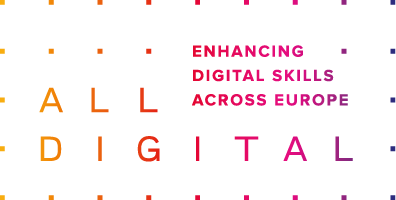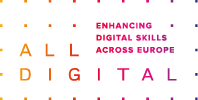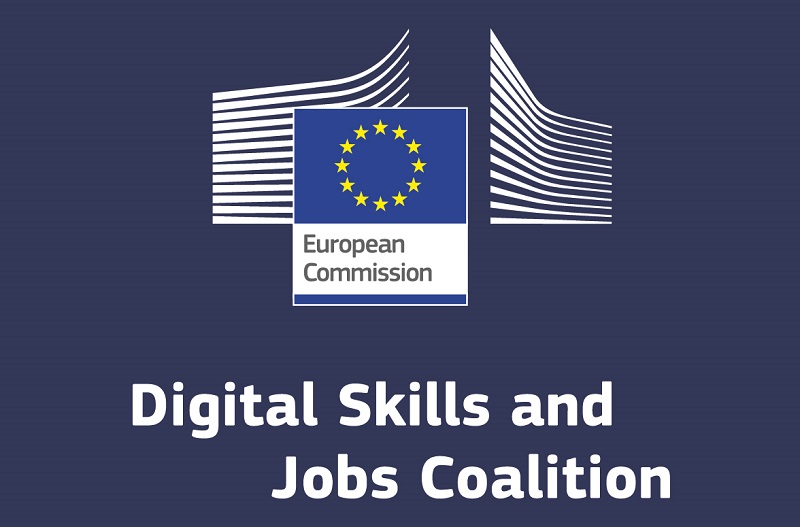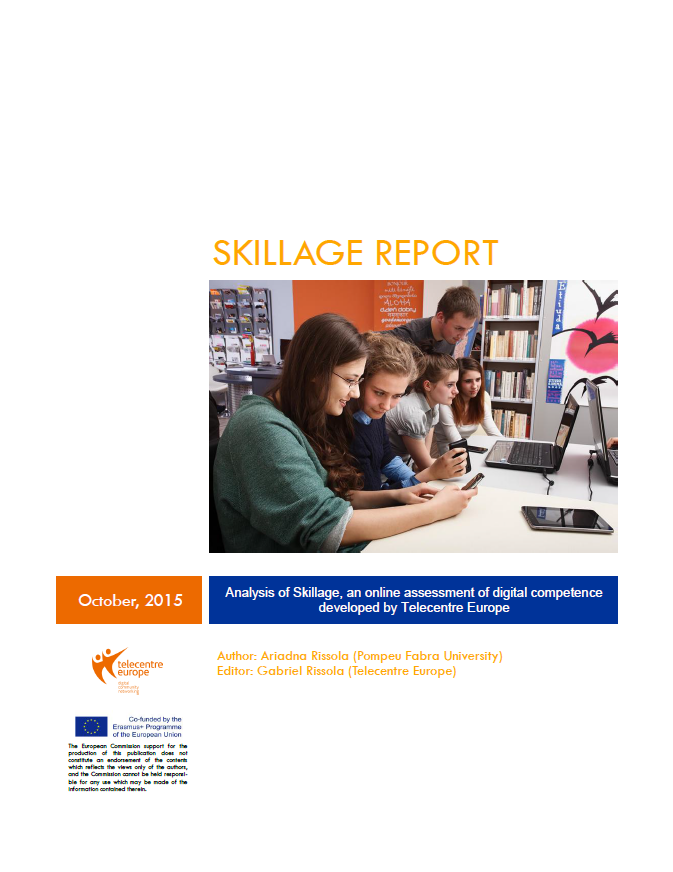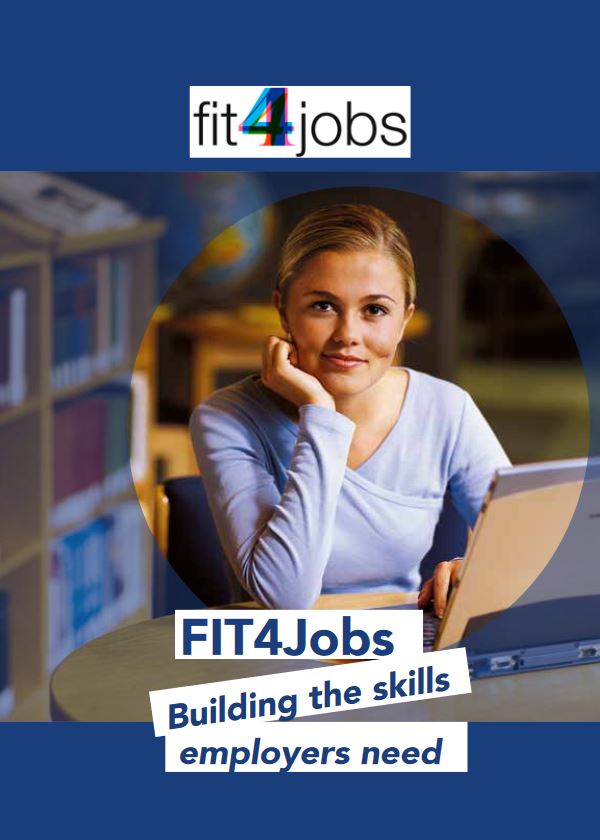10 Apr Get Online Week 2012: Telecentres reach 200.000 Europeans
10 Apr, 2012
Thousands of Europeans celebrated digital inclusion and empowerment during the Get Online Week campaign of Telecentre-Europe.
Between 26 and 30 March 2012, more than 10.000 telecentres in 50 countries supported over 200.000 people in their online journeys.
 The Get Online Week counter stopped at 142.544, but this doesn’t tell the whole story of the campaign this year. Another almost 10.000 people took the youth ICT skills assessment tool Skillage and more than 60.000 Get onliners have been captured by other internet tools and applications (e.g. IT barometer in Latvia).
The Get Online Week counter stopped at 142.544, but this doesn’t tell the whole story of the campaign this year. Another almost 10.000 people took the youth ICT skills assessment tool Skillage and more than 60.000 Get onliners have been captured by other internet tools and applications (e.g. IT barometer in Latvia).
Of the 142.544 that were supported to use the internet or new online services for the first time, about one in ten (14.404) were first-time internet users. Their online journey has just started.
 Laurentiu Bunescu, Campaign Manager at Telecentre-Europe said: “The digital gap in Europe is closing slowly, and the ones that are still offline, are those who are either most isolated from access and knowledge, either most resistant to the new technologies and way of life. Telecentres have doubled their efforts during the last year in the attempt to reach offliners, but also to shift from digital inclusion to digital empowerment, in order to maximize the benefits of those that are already online.”
Laurentiu Bunescu, Campaign Manager at Telecentre-Europe said: “The digital gap in Europe is closing slowly, and the ones that are still offline, are those who are either most isolated from access and knowledge, either most resistant to the new technologies and way of life. Telecentres have doubled their efforts during the last year in the attempt to reach offliners, but also to shift from digital inclusion to digital empowerment, in order to maximize the benefits of those that are already online.”
 There was a majority of women (59%) to men (41%), and almost 60% are active in the workforce, although 8% are unemployed. A majority of 60% have been registered by the counter in a telecentre type location (library, community center, education venue).
There was a majority of women (59%) to men (41%), and almost 60% are active in the workforce, although 8% are unemployed. A majority of 60% have been registered by the counter in a telecentre type location (library, community center, education venue).
 Gabriela Barna, Chair of Telecentre-Europe and Director of EOS Romania said: “People that visited telecentres during the Get online week started a journey of discovery about computers and the internet, which will lead them to benefit from better job prospects and wage premiums. Now, more than ever, direct investment in telecentres is key to make technology and the internet accessible to all.”
Gabriela Barna, Chair of Telecentre-Europe and Director of EOS Romania said: “People that visited telecentres during the Get online week started a journey of discovery about computers and the internet, which will lead them to benefit from better job prospects and wage premiums. Now, more than ever, direct investment in telecentres is key to make technology and the internet accessible to all.”
 Participants that had already started their online journey have been introduced to online services for the first time, or receiving ongoing support or learning. The Employment Toolkit helps them to acquire the required skills for new jobs, while Internet Buttons creates an intergenerational online social bond. Skillage assesses their understanding of ICT in an employment setting, targeting young people aged 16-24.
Participants that had already started their online journey have been introduced to online services for the first time, or receiving ongoing support or learning. The Employment Toolkit helps them to acquire the required skills for new jobs, while Internet Buttons creates an intergenerational online social bond. Skillage assesses their understanding of ICT in an employment setting, targeting young people aged 16-24.
 Ian Clifford, Deputy Chair of Telecentre-Europe said:
Ian Clifford, Deputy Chair of Telecentre-Europe said:
“In a time when youth unemployment is extremely high, supporting young people is key to unlocking economic challenges: Telecentre-Europe built Skillage, following up on a number of studies that highlighted the shortcomings in young peoples’ ICT skills for the modern workplace, which will be necessary for 90% of jobs in the near future.”
Get Online Week wouldn’t have had succeed without the vital participation of 30 national partner organizations. This year, new organizations joined the campaign, one of them being the Stiftung Digitale Chancen in Germany.
 Jutta Croll, Managing Director, Stiftung Digitale Chancen, said: “In Germany we focused on making people aware of the opportunities digital media offer. ‘You can’t teach an old dog new tricks’, does not longer hold true for the Internet, because there is a full range of new learning opportunities online available to everybody. Participants in our online debate confirmed this as well as the experts around the UdL Digital Roundtable held at the E-Plus premises in Berlin on the occasion of Get online week 2012. All over Europe people feel confident in getting acquainted with the Internet and it is a great pleasure being part of it. ”
Jutta Croll, Managing Director, Stiftung Digitale Chancen, said: “In Germany we focused on making people aware of the opportunities digital media offer. ‘You can’t teach an old dog new tricks’, does not longer hold true for the Internet, because there is a full range of new learning opportunities online available to everybody. Participants in our online debate confirmed this as well as the experts around the UdL Digital Roundtable held at the E-Plus premises in Berlin on the occasion of Get online week 2012. All over Europe people feel confident in getting acquainted with the Internet and it is a great pleasure being part of it. ”
Get Online Week this year has crossed the European borders, reaching over 3.000 people in Africa, and almost 2.000 in Asia, thanks to the involvement of our partners: Eurasia Telecentre Network, NetAfrica, and the Middle-East and North Africa telecentre network.
 The Telecentre-Europe campaign team also recognizes support from a range of stakeholders including Neelie Kroes, the Vice president of the European Commission, and the Commissioner responsible for the Digital Agenda, the European Commission, as well as the invaluable support of Microsoft, Liberty Global and Accenture.
The Telecentre-Europe campaign team also recognizes support from a range of stakeholders including Neelie Kroes, the Vice president of the European Commission, and the Commissioner responsible for the Digital Agenda, the European Commission, as well as the invaluable support of Microsoft, Liberty Global and Accenture.
“Thanks to all those of you at the grassroots helping get every European digital.
Well done! You’re all digital heroes.”
Neelie Kroes at the Get online week launch, Brussels, 8th of March 2012
Notes for editors
Get Online Week is an annual Europe wide campaign run by Telecentre-Europe, to get new computer users online. It helps to get people through the doors of their local telecentres, enabling staff to build people’s confidence to move on into more structured learning.
Telecentre-Europe AISBL is a not for profit international Association based in Belgium. It provides inclusive support to the vibrant network of Telecentres right across Europe to increase their impact and effectiveness by fostering knowledge sharing and learning amongst its members. There are an estimated 30,000 telecentres within the network. Telecentres are publicly accessible places where people can get help to access computers, the internet and other digital technologies that enable them to gather information, create, learn, and communicate with others. For more information visit www.getonlineweek.eu and archive.telecentre-europe.orgor contact Laurentiu Bunescu laurentiu.bunescu@telecentre-europe.org
Stiftung Digitale Chancen (Digital Opportunities Foundation) is a German NGO working on overcoming the Digital Divide, promoting E-Inclusion and providing programs and tools to promote Digital Literacy for underserved groups. For more information visit www.digitale-chancen.de
